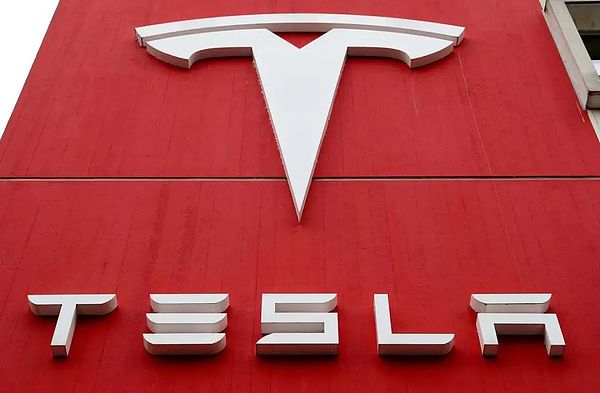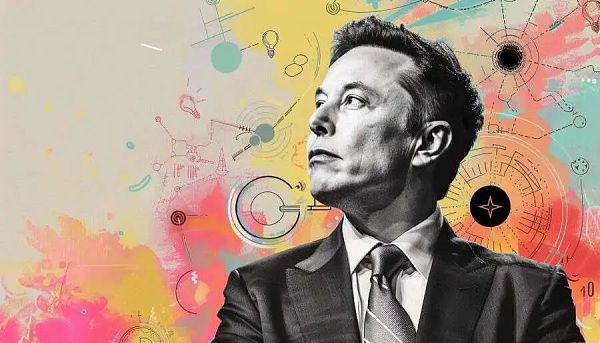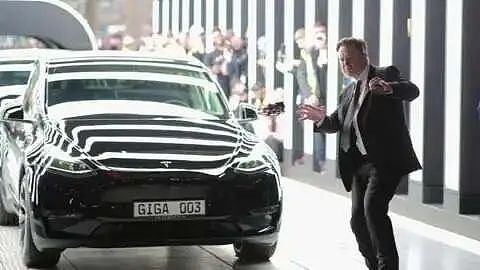Source: Heart of the Metaverse
Tesla CEO Elon Musk announced that this year it will invest about $10 billion in artificial intelligence development, especially to improve its cars to enhance autonomous driving functions.
This statement confirms Tesla's claim that artificial intelligence is a strategic priority to maintain its competitive advantage in the automotive industry.
01. Huge capital investment
Musk revealed on the X platform that the huge $10 billion Tesla has invested in artificial intelligence operations will be used for training and reasoning activities. The main purpose is to help improve Tesla's autonomous driving system and, if possible, improve the autonomous taxi (Robotaxi) service.
Through heavy investments in artificial intelligence, Tesla seeks to improve its existing technologies and create new systems that will change vehicle navigation methods, how vehicles interact with the environment, and more.
Tesla's AI investment will be used specifically to upgrade the autonomous driving functions of its cars, with a focus on developing full autonomous driving (FSD) software.

Currently, Tesla's Autopilot and FSD features are the most advanced driver assistance systems on the consumer market.
Developing this feature is considered key to Tesla's further lead over its competitors and meeting customer demand for innovative, safe autonomous driving solutions.
In addition, the investment is likely to be used for the Robotaxi project, an ambitious plan to build a fleet of fully autonomous vehicles to provide ride-hailing services without human drivers.
The project not only demonstrates Tesla's dedication to artificial intelligence, but also reflects Tesla's foresight in predicting future traffic trends.
Musk's announcement not only shows Tesla's positive attitude in incorporating artificial intelligence into its operations, but also sets a strong benchmark for other companies in the industry.
Musk believes that investing heavily in artificial intelligence is a basic requirement for an automotive company that hopes to become valuable. This approach means that Tesla sees AI capabilities as part of its products and long-term prospects.
02. Sequoia Capital joins the game
In addition, Musk's artificial intelligence startup xAI seems to have received strong support from Sequoia Capital.
Musk founded xAI in 2023 with lofty ideals and is committed to solving existing problems, such as understanding the nature of the universe.
Musk has raised up to $6 billion for his new company and has contacted investors who previously supported his acquisition of Twitter (now X).
According to a report by the Financial Times on April 25, the latest round of financing may mean a valuation of xAI of $18 billion.
Sequoia, which once invested $800 million in Twitter, has confirmed its intention to invest in xAI, but the specific amount has not yet been disclosed.
Sequoia Capital’s support for xAI is not surprising; the Silicon Valley investment firm is a longtime collaborator and backer of Musk, and Sequoia’s current boss Roelof Botha was employed by Musk at PayPal in 2000.

But Musk’s xAI faces stiff competition from rival AI companies in this hot emerging market sector.
OpenAI and Anthropic are both startups making big waves, as well as existing tech giants like Meta (which this week announced a major increase in AI spending) and Google.
The money from Sequoia and other investors will help accelerate the development of xAI’s chatbot Grok, bringing its performance closer to that of its competitors.
Musk’s foray into the AI industry has not been without controversy. He co-founded OpenAI in 2015, but left the board in 2018 due to disagreements with CEO Altman over research directions.
Recently, Musk sued OpenAI and Altman, saying they undermined the startup's original mission of "building artificial intelligence systems that benefit humanity," but OpenAI called the case "meaningless" and tried to dismiss the lawsuit.
03. Tesla's layout in China
Recently, Musk was visiting Beijing. Some media reported that the purpose of Musk's visit was to discuss the activation of Tesla's autopilot mode in China.
Musk hopes to achieve fully autonomous driving (FSD) in China and transfer data collected in China to foreign countries to train its algorithms.
The news was released together with a report from the United States that Tesla's autopilot mode caused at least 13 car accidents, one of which was fatal.
Tesla is willing to deepen cooperation with China to achieve more win-win results, Musk said during a meeting with Premier Li Qiang.
In response, Premier Li told Musk that the Chinese market will be ‘always open to foreign companies.’

Tesla has previously taken steps to assure Chinese authorities that it will launch FSD in China, including building a data center in Shanghai to process Chinese consumers’ data in accordance with local laws. The trip comes days after the U.S. National Highway Traffic Safety Administration (NHTSA) said it was investigating safety issues related to Tesla’s driver-assistance system.
NHTSA said the driver involved in the crash “was not fully engaged” despite being asked to keep his attention on the road and be ready to take control of the vehicle at any time when Autopilot is enabled.
So Tesla's software should ensure that drivers are paying attention and that the feature is only used under appropriate conditions, such as when driving on the highway.
Musk has promised for years that Teslas will be able to act as self-driving "robotaxis." This month, he said the company's robot taxis would be unveiled in August.
Critics accuse Musk of hyping the prospect of fully autonomous driving to prop up the company's stock price, which has fallen due to challenges such as falling global demand for electric vehicles and competition from cheaper Chinese manufacturers. Musk has denied the allegations.
 Alex
Alex
 Alex
Alex Miyuki
Miyuki Weiliang
Weiliang Kikyo
Kikyo Weatherly
Weatherly Alex
Alex Miyuki
Miyuki Miyuki
Miyuki Weiliang
Weiliang Catherine
Catherine